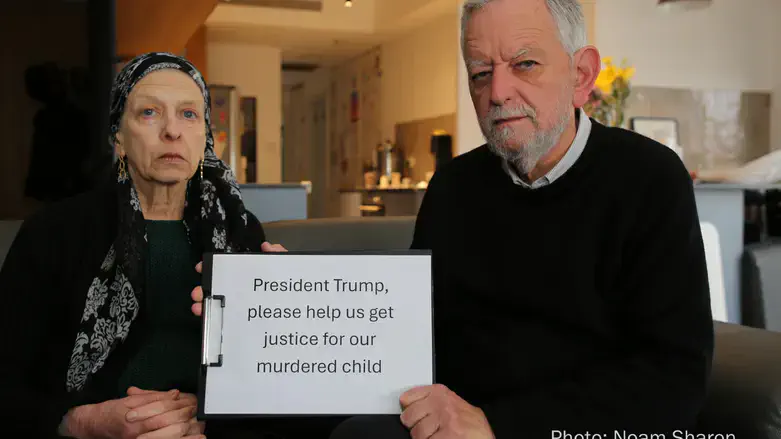
On Tuesday February 11, President Trump hosts Jordan’s King Abdullah II in the White House. It will be an unusually important opportunity – perhaps a unique one – for the US to address a long-standing injustice. In doing so, Mr Trump can clarify for the Jordanians how treaties are respected and how terrorism is fought.
Beyond the diplomatic pleasantries, it offers a focus on the extradition of Ahlam Al-Tamimi, a convicted terrorist who has evaded American justice for far too long.
Tamimi is notorious for her key role in the 2001 Sbarro pizzeria bombing in Jerusalem, an atrocity that obliterated the lives of 16 people, including three Americans. One was my fifteen year old daughter Malki. Half of Tamimi’s victims were children. In public appearances, she has underscored how children were the target.
Tamimi was sentenced to multiple life sentences by an Israel court. But she walked free in 2011 as part of an extortionate deal made by Israel with the Hamas terrorist group (she was their first female jihadist) for Gilad Shalit, an Israeli soldier held hostage for five years. Tamimi went to Cairo briefly and then to her homeland, Jordan, where she has lived a highly public life since then, including more than four years of hosting her own weekly TV program extolling terrorists and encouraging support for what they do. This while she was (and still is) an FBI Most Wanted with a $5 Million State Department reward on her head.
The 1995 bilateral extradition treaty between the U.S. and Jordan explicitly obligates Jordan to extradite fugitive criminals like Tamimi to face American justice.
The Tamimi prosecution began in Washington in 2013 when the Department of Justice charged her with conspiracy to use a weapon of mass destruction against Americans abroad. It’s blocked because Jordan harbors her, brushing off the clear legal and treaty obligations and pointedly refusing to extradite.
It’s a refusal that undermines core principles of international law and cooperation that are vital to the collective efforts demanded by the ongoing war against terrorism.
The Trump administration must make it clear that harboring a terrorist, especially one who has killed American citizens, is clearly a breach of treaty but, beyond that, an affront to American sovereignty. The King's visit provides President Trump an opportunity to underscore this message.
What’s at stake is legal accountability but also the imperative of demonstrating in the clearest way that there are consequences for supporting or shielding terrorists.
King Abdullah needs to hear from President Trump that justice for the victims is non-negotiable.
For the families of those killed, like mine, the ordeal, marked by years of ignored letters and pleas to U.S. officials, speaks to a failure of both diplomatic and moral leadership. This cannot continue.
There are times when the geopolitical landscape requires delicate handling, but some issues and moments transcend diplomatic nuance. The extradition of Tamimi now is one of them. It’s about this one celebrity terrorist but it’s about a broader, absolutely vital message that the U.S. must send to an increasingly dangerous world regarding its commitment to fight terrorism.
If allies like Jordan can ignore U.S. extradition requests with impunity, what message is being given to other nations and to terrorists themselves?
Moreover, this is more than just a bilateral issue; it's about the integrity of international law. If treaties like the one the U.S. made with Jordan can be flouted without consequence, what's to prevent similar disregard in other areas of international cooperation? This endangers everything from trade to security agreements, and undermines the very fabric of international relations.
President Trump should leverage his guest’s visit to assert that the U.S. will not tolerate such breaches. He must be firm, clear, and public about the expectations set upon Jordan. The American public deserves to see leaders stand firm on issues of justice and national security.
As King Abdullah II steps into the Oval Office, President Trump must ensure that the extradition of Ahlam Al-Tamimi is at the forefront. It's a showcase opportunity for President Trump to show that under his administration, the United States will not merely talk about justice but will actively pursue it, even when this challenges the comfort of diplomatic relations. This isn't just about one terrorist; it's about the integrity of the justice system and our collective resolve.